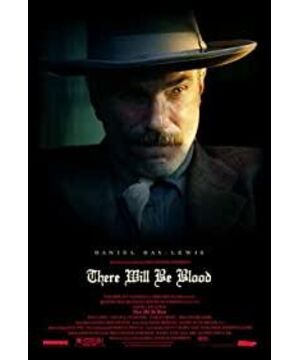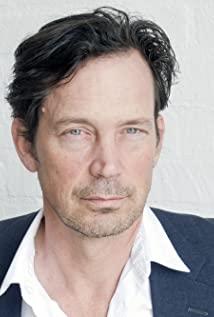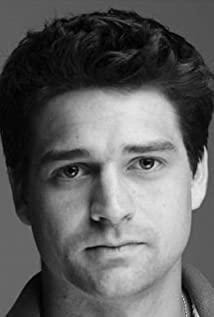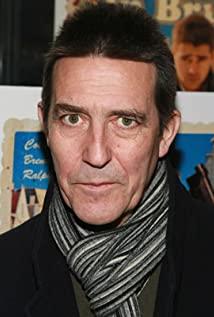"There will be blood" is a religious name. The blood here can be literally, combined with the Abel metaphor in the work, it can be understood that blood needs to be seen when sacrificing a lamb, and "There will be blood" can be understood as "the sacrifice is about to be completed"; but at the same time in Christianity Blood can also mean blood relatives, that is, those who believe in the same church are all brothers in the church, then "There will be blood" can be translated into "We will become blood relatives"; the combination of the two means the third layer is more frightening. : "I will sacrifice my blood relatives".
This work shows the process of oil extraction quite poetically, and some of the images have a feeling of "Kubrick's soul possessed"; but the handling of the plot contradictions is too formal, and of course it can be said to be under the surface of the script. The iceberg is huge. After watching it, I am afraid that the most impressive image of the protagonist is the extremely lonely, arrogant, selfish and self-tortured character image. But other than that, it's hard to say what's going on with the film. However, there are always many ways for people to interpret the words "America", "religion" and "capital" together.
The film opens with a worker mining alone in the barren mountains. He builds fires, builds scaffolding for mining, detonates explosives, and goes down to find ore. At this point an accident happened and he fell off the ladder and fell into a coma. After waking up, he found the treasure he dug up. So he left with a badly wounded body, sold the stone, and we saw his name on the trade contract: Daniel Prevey. This is the first scene of the film.
Lonely people searching for fortune in a desolate environment, these five minutes set the overall tone and have a refreshing feel. Apart from the detailed description of the mining steps and equipment, there is hardly any redundancy in the first act. There are no lines, just two background music, the characters have no expressions, and the background is nothing but mountains, rocks and bushes. The photography is also not fancy, like very old school movies. Throughout the whole work, there are not many main scenes, but they are very realistic and detailed; there are few lines to express emotions, but the characters are full and profound. The ability to create highly dramatic conflicts with simple and concise materials is also a highlight of this script.
The second act formally presents the details of oil extraction, much like the first paragraph. The difference is that the background music at this time is melodious and soothing classical music. In fact, after this work, all the passages related to oil exploration use cheerful classical music. Said to be taken from Brahms. If you pay close attention to the operation of oil extraction equipment, there is indeed a rhythm in it, which is probably the source of inspiration for the director. In terms of photography, the emphasis is on the crude oil that has just been mined. A little bit of sunlight flickers on the oil surface, and the picture exudes a psychedelic atmosphere, even filled with a texture of happiness and dreams. Perhaps the director wanted us to empathize with the allure of oil at that time. This scene also contains important information in the script, such as the protagonist's self-taught mining technology since then, and where his adopted son came from; at the same time, the two accidents in these two scenes also point out the background of the times: this is still a capital primitive period of accumulation.
The only "spectacle" in this work is the passage of oil gushing out, igniting the fire that illuminates the entire night sky. This scene corresponds to the moment of "There Will Be Blood" in the title, and it is also the turning point of the whole film. Before that, the portrayal of the protagonist in the film made him appear gentle and elegant, but these descriptions were superficial, and the contradictions between the characters only began to appear; after that, the film began to show the arrogant and cruel inner world of the protagonist The contradictions broke out one by one, and began to show the audience a darker and darker plot. Unlike the rest of the film, this part uses a lot of technique in order to achieve perfect expression. The frequent editing shows the sense of space and time, the moving camera shows the group image and the tense atmosphere; the background music is strange and novel, which fits the picture very well, from the rapid and rhythmic drums at the beginning, to the violin in the middle, and finally the noisy noise . Interspersed in the process of oil gushing, fire, and extinguishing. During the period, there was such a scene: the whole picture was filled with red flames, a group of people with small backs surrounded the oil, and only the protagonist was dancing with excitement. Here the director tries to restore the crazy emotions that people had when they saw oil seeping out of the ground: "From the moment the oil came out of the ground, the whole community began to fall into a state of complete madness, and everyone was trying to keep this situation going. Over time, he saw naked greed, as if everyone but him was on the brink of madness."
This is a film with a strong religious overtone, and there are many obvious hints. For example, the poster at the time of release imitates the style of the Bible; the title is directly taken from "Exodus"; the church is an important role in the film; the ranch The name of the Lord is Abel; in the end, he even said the metaphor directly through the mouth of the protagonist: "I drank the blood of the lambs in the field of Bandy."
In the fifth act of the film, the director threw a riddle to the audience: when the father and son visited the farm for the first time, the rancher Abel asked if he wanted to drink goat milk. So the question is, where is Abel, where is Cain? The old man has no brothers. This land raises sheep, where are the sheep? There are no sheep from the beginning to the end of the film. The answer is that our protagonist is the kinslayer Cain. The land is the sheep, and the crude oil under the land is the blood of the lamb.
The game between religion and capital is the hidden thread of the whole movie, and it is also the origin of most of the contradictions in the script. The contradiction is revealed from the very beginning: when the land deal is concluded, the oilman shakes hands with the pastor, the pastor takes his hand and begins to pray, and the latter breaks away impatiently; the pastor hopes that the oilman is drilling On the first day, he signaled his existence to the crowd, but the latter ignored it; the rancher physically punished his daughter for religious reasons, and the oil dealer threatened him face-to-face; the pastor wanted to get back the money to build his church, but the oil dealer said nothing. Beat him up; the last piece of land the oil dealer needed to build the pipeline was in the hands of a devout believer who forced him to submit to the church; for money and status, the priest forced the oil dealer to admit himself Abandoned children; oil merchants forced priests to deny their faith for money and status.
But where is the inevitability of contradiction? The chaplain's hostility to oil merchants is well understood. Before the oil merchants came, the people there were religiously organized; when the oil merchants brought their own workers and their families, they had another option. They can be organized together entirely through commercial activities. For example, for these migrant workers, local people can sell them food and daily necessities. As a result, the organizational power of religion is weakened. From a symbolic point of view, the entire United States began as a Christian country founded by the Puritans. With faith in God and the power of the church, people in remote areas came together to help each other; and the advent of industrialization broke all of this, The primitive accumulation of capital has become the theme of the times. From the gold rush to the oil rush, people do not need God, but only endless material desires; society no longer needs religion to maintain, and industrial production relations have made up for this vacancy. When the underground oil is gushing out, it means that the lamb is slaughtered and the sacrifice is ready. However, it is the oil merchants (capital) who enjoy this sacrifice, not the priests (religion).
On this basis, everything the pastor does is reasonable. The first thing he did was to ask the oil merchant for money to build the church; when the oil merchant called the villagers, he also asked in public, where will the church be located in the future? In addition, he actively wooed the workers brought in by the oil merchants in an attempt to draw them into the church. Of course, all the efforts are meaningless the moment the oilman steps into the church. The film deliberately depicts the local church The Third Revelation in the direction of a cult. Look at his madness, whoever God makes to perish must first make him mad. From this scene, we can see that the pastor is also a fallen person. He obtained the support of the villagers by pretending to be a ghost, and he spoke ill of his father, and avenged his personal revenge in front of God; even just a few words could make him deny his beliefs. In the end, the pastor was teased or even killed by the oil dealer, which probably means that: in an era when everyone is eager for fame and fortune and "properties are broken", religion is simply powerless to compete with capital; in other words, business leaders are the new prophets, and capital is the new faith. (“I am the Third Revelation!”)
The role of Privy earned Daniel D. Lewis his second Oscar. The average actor audience will remember him as a person, but not his role; the outstanding actor audience will remember a certain role of him, and when watching him appear in a new work in the future, they can't help feeling that it is the same role; and for Lewis , each of his performances brings a new role.
Lewis has plenty of very emotional performances later in the film that are eye-opening enough, but not what makes the character flesh and blood. In the two-hour-long film, Lewis brings many personal traits to the character: the jerky pace due to an accident at work, the twitching eyebrows when thinking, the half-squinting eyes when excited, the forward-looking posture when walking. The flesh and blood of the character is not brought by a certain outbreak, but is piled up by details, because a character cannot always be in a scene that needs to show emotion. With these details, the actor can become another person. That's probably why Lewis doesn't feel like he's pushing too hard no matter how much he yells.
Let's talk more about this role. Why is he called Cain in the play? Because of his obvious kin-killing: the first kin-killing, he killed his fake brother; the second kin-killing, he killed the son in his heart; the third kin-killing, he killed the priest (relative by marriage , and also a teaching brother).
Some people think this character is greedy, which I have reservations about. First of all, it is obvious that he is not greedy for material comforts. In the film, he never touches any women; when someone wants to buy his property, he asks back, what would I do without the property? So what does he desire? Hear his own voice: "I'm used to competition, I don't want anyone to succeed. I hate most people... Sometimes I stare at a person and don't see any good. I want to make enough money and stay away from Everyone...I can see the worst in people, and I don't need to know them in depth to know what I want to know. All the hatred has gathered little by little over the years." The world-weariness and arrogance in the character's heart was evident in the words. If exposed. First, he hated the world; however, he longed for fame and fortune from the world; and finally, he wanted to stay away from the world. It can be seen that, in a sense, the character is pathologically pursuing a sense of purpose: to achieve worldly success. And this sense of mission comes from instinct rather than religion.
It's a sense of purpose that most people share. It can be understood this way: in primitive society, individuals gain power through forceful confrontation. In modern society, we no longer use violent confrontation to gain power, but the male hormones brought about by competition for power still exist. For the protagonist, on the one hand, the pressure of competition in the subconscious makes him uncontrollably hostile to all his opponents and eager to defeat them; ; success made him think he had conquered most people; seclusion after success gave him the opportunity to relieve this pressure.
This image is the epitome of an era. He symbolizes the tragedy of an age when there is no faith and only acts of self-will. Maybe everyone has such an extremely straight male cancer side in their hearts: they are willing to sacrifice everything they have, just to live more successfully than others; they reject everything and do not want to associate with others. And this character just magnifies this part infinitely. Take a look at his ideal life: be successful in the worldly sense first, and then live in isolation. In this way he can prove to himself that I am superior; I have abandoned the world, and not the world has abandoned me. And the irony is that many of these traits drive society forward. None of the crimes committed by the protagonist in the film was committed as a capitalist. This may be the actual meaning of "capital is the new belief".
Drama is always about people. Humans have two attributes, one for their origin and one for their purpose. The former is the animal nature of man, that is, all the original desires; the latter is the divinity of man, that is, the meaning given by self and the subsequent self-transformation. This is not a simple confrontation between good and evil. Drama sometimes requires divinity to overcome animal nature, that is, redemption, self-redemption;
This antagonistic relationship can be found in two correspondences in this work: on the one hand, the industrial capital and material desires represented by oil merchants correspond to the former; the religious power and self-restraint represented by priests correspond to the latter; Selfishness and depravity correspond to the former, while the remaining goodwill in man's heart corresponds to the latter.
The first point has been explained before, let's look at the second point. Both Privy and Eli are undoubtedly fallen men, representing animal nature. They are like two sides of a coin. Plevy got it from oil, Eli got it from religion. The mutual revenge of the two is also the dramatic climax of the entire film: they both say things they don't want to admit in the pain of fame and fortune. The ingenuity behind this is self-evident: if Privy really only used his adopted son as a business vehicle, he would not have been furious when he was forced to admit that he had abandoned the child, nor would he have left the child. Self-defeating afterward; if Eli was really just a liar who used religious means to gain fame and status, he wouldn't blushed when he denied his beliefs; if they were really unconscience, they wouldn't Painful. Their pain comes from the divinity in their hearts, from the remaining conscience in their hearts. This is the source of conflict. Human nature is the unity of opposites between animal nature and divinity, which is the beauty of drama.
View more about There Will Be Blood reviews











